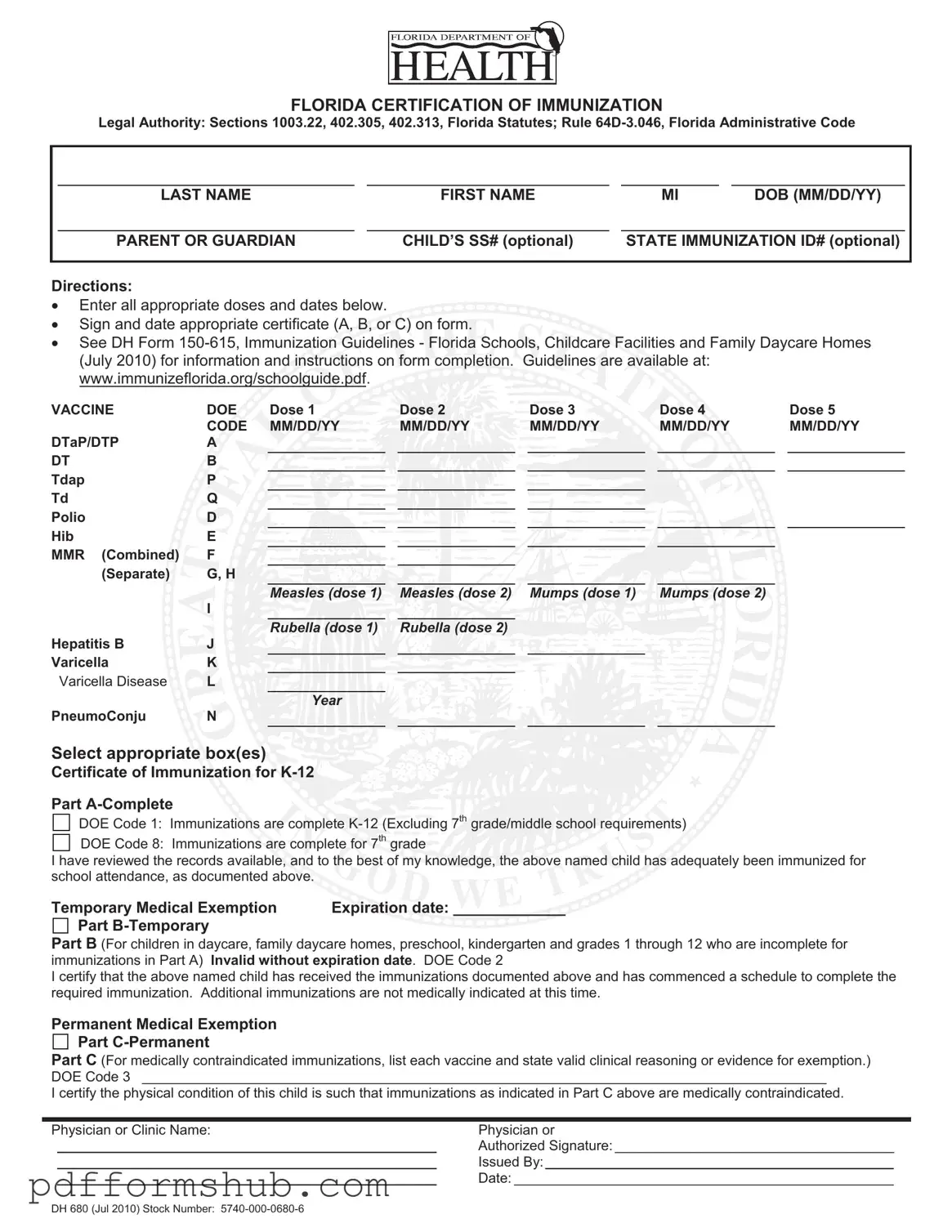Fill in Your 680 Form
The 680 form, officially known as the Florida Certification of Immunization, is a critical document used to verify that children have received the necessary vaccinations for school attendance. It is governed by specific Florida statutes and administrative rules, ensuring compliance with health requirements for educational settings. Timely completion of this form is essential for enrollment, so take action now by filling it out using the button below.
Customize Form

Fill in Your 680 Form
Customize Form

Customize Form
or
Free PDF Form
Short deadline? Complete this form now
Complete 680 online without printing hassles.